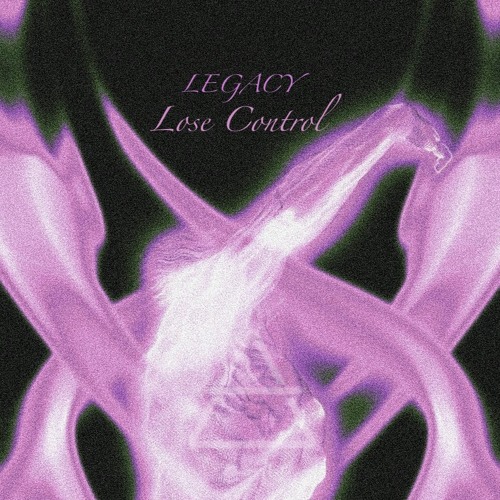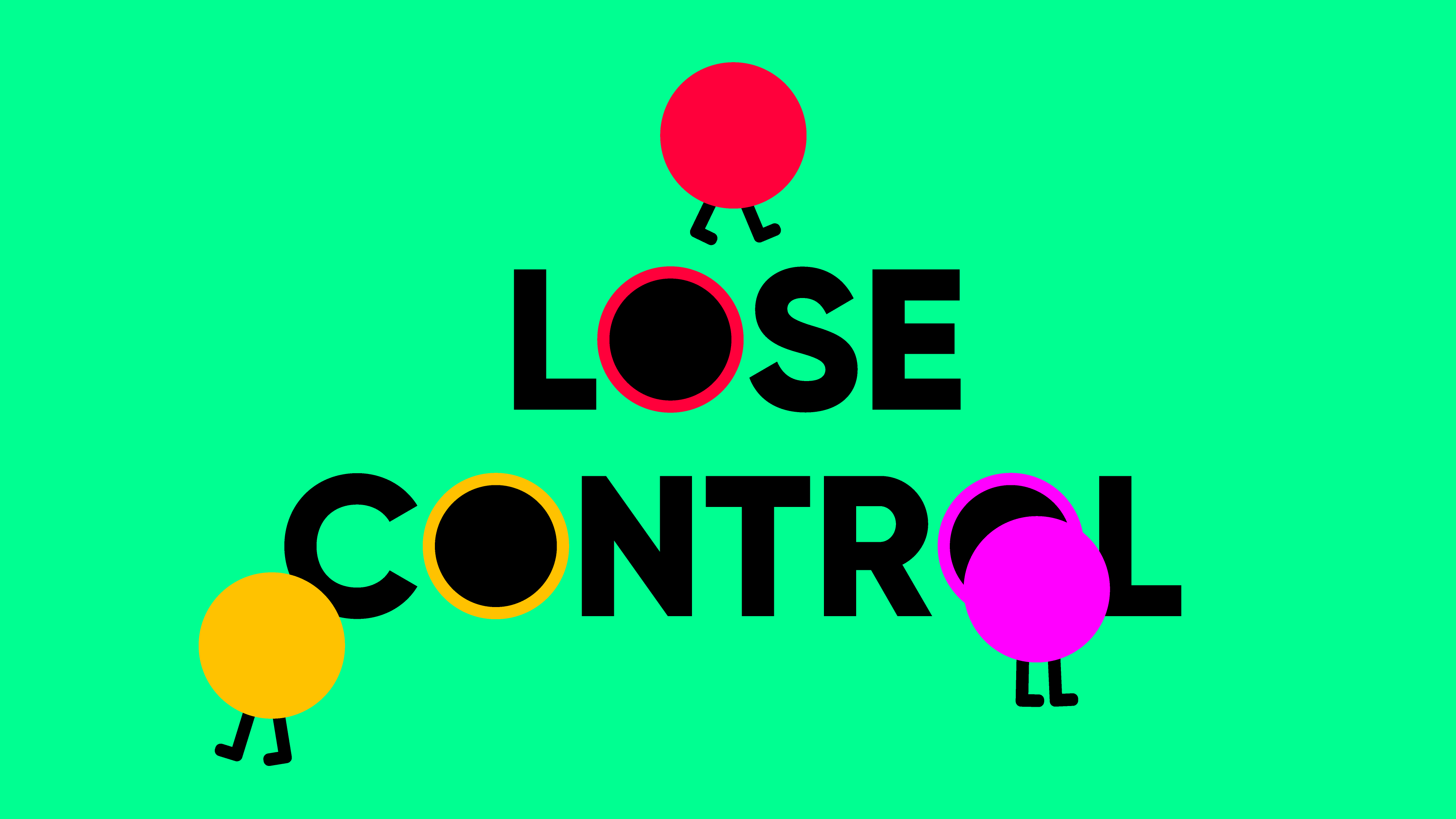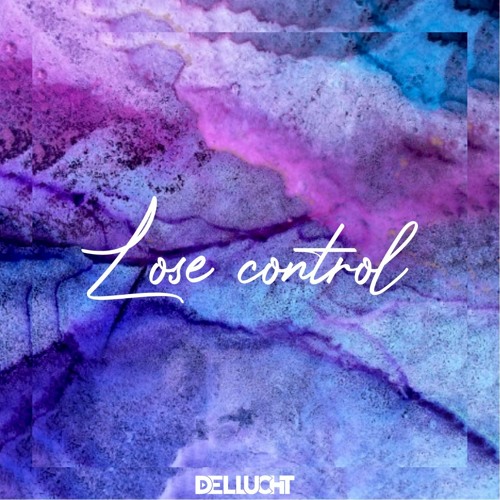Lose Control Meaning: Understanding The Concept, Implications, And How To Regain Balance
Have you ever felt like life is spiraling out of control? Like you're in the backseat while your mind takes over the wheel? "Lose control" is more than just a phrase—it's a feeling that millions of people experience daily. Whether it's losing control of emotions, finances, relationships, or even your own thoughts, this concept affects us all at some point. But what does it really mean to lose control?
Let’s break it down, shall we? Losing control isn’t always bad. Sometimes, it can lead to growth, self-discovery, and new perspectives. But when it gets overwhelming, it can feel like you're stuck in a never-ending whirlwind. That’s why understanding the meaning behind losing control is crucial. It’s not just about regaining balance—it’s about learning how to navigate life’s challenges without letting them take over.
So, buckle up because we’re diving deep into the world of "lose control meaning." From psychological insights to practical tips, this article has got you covered. By the end of it, you’ll not only understand what it means to lose control but also how to take back the reins of your life.
Read also:Peter Riegert Children Mystery Does He Have Kids Or Not
Here's a quick overview of what we'll cover:
- What Does Losing Control Mean?
- The Psychology Behind Losing Control
- Real-Life Examples of Losing Control
- Emotional and Mental Effects of Losing Control
- How to Regain Control of Your Life
- Losing Control in Relationships
- Losing Control of Finances
- Managing Emotional Control
- Losing Control at Work
- Preventing Future Loss of Control
What Does Losing Control Mean?
Losing control, in its simplest form, refers to the state where you feel like you no longer have authority over a situation, emotion, or decision. It could mean anything from losing control of your temper during an argument to feeling like your life is spiraling out of control due to external pressures. The concept of losing control is deeply personal and varies from person to person.
For some, losing control might mean giving in to impulses or desires that they know aren’t healthy. For others, it might mean feeling powerless in the face of external circumstances. No matter how it manifests, losing control often leaves people feeling anxious, frustrated, and even hopeless.
But here’s the thing—losing control isn’t inherently negative. In fact, sometimes letting go of control can be liberating. Think about those moments when you let loose and enjoyed life without worrying about every little detail. The key lies in finding a balance between letting go and staying grounded.
Breaking Down the Meaning
When we talk about losing control, we’re usually referring to one of three things:
- Emotional Control: This happens when you can't manage your emotions effectively, leading to outbursts or extreme reactions.
- Situational Control: When external factors overwhelm you, making it seem like you have no say in what happens next.
- Self-Control: This is all about resisting impulses and sticking to your goals, whether it’s eating healthy or saving money.
The Psychology Behind Losing Control
From a psychological perspective, losing control is often linked to stress, anxiety, and trauma. When we feel like we’re losing control, our brain triggers the "fight or flight" response, which can make us react impulsively. This is why people who lose control often find themselves regretting their actions later.
Read also:Federer Family 2025 A Closer Look At The Tennis Legends Life Beyond The Court
Studies show that people who frequently lose control tend to have lower levels of self-efficacy, which is the belief in one’s ability to handle challenges. Without this belief, it’s easy to feel overwhelmed and powerless.
But there’s good news! Psychology also teaches us that losing control is a natural part of life. What matters most is how we respond to it. By developing coping mechanisms and building resilience, we can turn moments of loss into opportunities for growth.
Key Psychological Insights
Here are some insights from psychology that can help you better understand losing control:
- Loss of control often stems from unresolved fears or anxieties.
- People with high stress levels are more likely to lose control.
- Building emotional intelligence can help you regain control faster.
Real-Life Examples of Losing Control
To truly grasp the concept of losing control, let’s look at some real-life examples. These scenarios will help you see how losing control plays out in everyday life:
Example 1: Losing Control of Emotions
Imagine this: You're having a bad day at work, and someone cuts you off in traffic on your way home. Normally, you’d shrug it off, but today, you find yourself honking furiously and yelling at the driver. That’s an example of losing emotional control.
Example 2: Losing Control of Finances
Let’s say you’ve been saving up for a big purchase, but then you go on a shopping spree and spend all your money on impulse buys. This is a classic case of losing financial control.
Example 3: Losing Control in Relationships
In relationships, losing control can mean giving in to jealousy or anger, leading to arguments or even breakups. It’s important to recognize these patterns and address them before they spiral out of control.
Emotional and Mental Effects of Losing Control
Losing control doesn’t just affect your actions—it also has a profound impact on your emotions and mental health. People who frequently lose control often experience:
- Anxiety
- Depression
- Low self-esteem
- Feelings of helplessness
Over time, these effects can lead to serious mental health issues if left unchecked. That’s why it’s crucial to address the root causes of losing control and develop strategies to manage it effectively.
How to Recognize the Signs
Before you can tackle losing control, you need to know what to look for. Here are some common signs:
- Feeling overwhelmed by small problems
- Reacting impulsively without thinking
- Struggling to stick to goals or commitments
- Experiencing frequent mood swings
How to Regain Control of Your Life
Now that we’ve explored what it means to lose control, let’s talk about how to regain it. Regaining control isn’t about micromanaging every aspect of your life—it’s about finding balance and taking back the reins where it matters most.
Step 1: Identify the Triggers
The first step in regaining control is identifying what triggers you to lose it in the first place. Is it stress? Fatigue? External pressures? Once you know your triggers, you can start working on strategies to manage them.
Step 2: Practice Mindfulness
Mindfulness is all about being present in the moment and observing your thoughts without judgment. By practicing mindfulness, you can learn to recognize when you’re starting to lose control and take steps to prevent it.
Step 3: Set Realistic Goals
Setting realistic goals is key to regaining control. Break down your larger goals into smaller, manageable steps, and celebrate each victory along the way. This will help you stay motivated and focused.
Losing Control in Relationships
Relationships are one of the most common areas where people lose control. Whether it’s losing control of your emotions during an argument or feeling like you’re losing control of the relationship itself, these moments can be incredibly challenging.
The key to regaining control in relationships is communication. By talking openly and honestly with your partner, you can address issues before they escalate. It’s also important to set boundaries and respect each other’s needs.
Tips for Maintaining Control in Relationships
- Practice active listening
- Express your feelings calmly and respectfully
- Set clear expectations and boundaries
Losing Control of Finances
Financial control is another area where people often struggle. Whether it’s overspending, failing to save, or taking on too much debt, losing control of your finances can lead to serious consequences.
To regain financial control, start by creating a budget and sticking to it. Track your expenses, prioritize savings, and avoid impulse purchases. It’s also a good idea to educate yourself about personal finance so you can make informed decisions.
Financial Tips to Regain Control
- Use budgeting apps to monitor your spending
- Set aside a portion of your income for savings
- Pay off high-interest debt first
Managing Emotional Control
Emotional control is crucial for maintaining balance in all areas of life. Whether it’s managing stress, controlling anger, or dealing with sadness, learning to regulate your emotions can help you avoid losing control.
Techniques like deep breathing, meditation, and journaling can all help you manage your emotions more effectively. It’s also important to seek support when needed, whether from friends, family, or a mental health professional.
Strategies for Emotional Control
- Practice deep breathing exercises
- Keep a journal to process your emotions
- Engage in regular physical activity
Losing Control at Work
Workplace stress is a common cause of losing control. Whether it’s feeling overwhelmed by deadlines, dealing with difficult coworkers, or facing burnout, losing control at work can affect your productivity and well-being.
To regain control at work, start by setting priorities and delegating tasks when possible. Take breaks throughout the day to recharge, and don’t be afraid to say no when your plate is already full.
Workplace Tips for Regaining Control
- Set realistic goals and deadlines
- Communicate openly with your manager and colleagues
- Take regular breaks to avoid burnout
Preventing Future Loss of Control
Preventing future loss of control requires a proactive approach. By developing healthy habits and building resilience, you can reduce the likelihood of losing control in the future.
Here are some tips for preventing loss of control:
- Maintain a healthy lifestyle through diet, exercise, and sleep
- Practice stress-reducing activities like yoga or meditation
- Seek support from friends, family, or professionals when needed
Remember, losing control is a natural part of life. What matters most is how you respond to it. By understanding the meaning behind losing control and taking steps to regain balance, you can lead a more fulfilling and empowered life.
Kesimpulan
Losing control doesn’t have to define you. Whether it’s emotional, situational, or self-control, understanding the meaning behind losing control is the first step toward regaining balance. By identifying triggers, practicing mindfulness, and setting realistic goals, you can take back the reins of your life.
So, what’s next? Start by reflecting on areas where you feel like you’re losing control and take action. Share this article with someone who might benefit from it, and don’t forget to leave a comment below sharing your thoughts. Together, we can turn moments of loss into opportunities for growth and empowerment.
Article Recommendations


